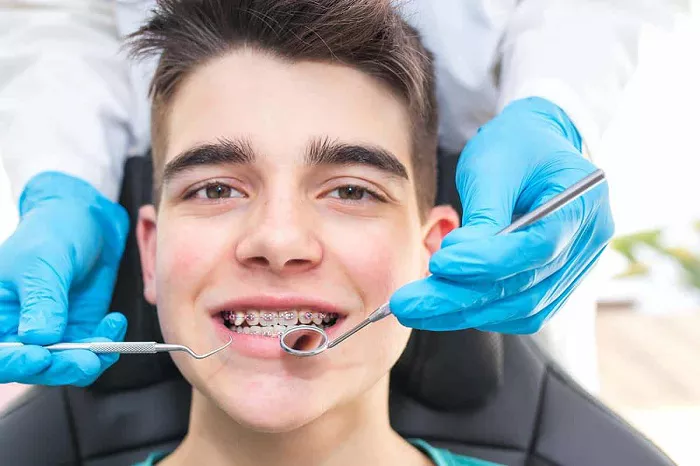Orthodontic treatment is often associated with achieving a straighter, more attractive smile. However, its importance goes far beyond aesthetics. Properly aligned teeth and jaws play a critical role in maintaining oral health, improving functionality, and enhancing overall well-being. This article explores the key reasons why orthodontic treatment is necessary, highlighting its impact on health, function, and quality of life.
The Foundation of Oral Health
Preventing Tooth Decay and Gum Disease
Misaligned teeth can create hard-to-reach areas where plaque and food particles accumulate. Over time, this buildup can lead to tooth decay and gum disease. Orthodontic treatment aligns teeth properly, making it easier to clean them effectively. By reducing the risk of cavities and periodontal issues, orthodontics helps maintain long-term oral health.
Reducing Wear and Tear on Teeth
When teeth are crooked or misaligned, they may not fit together properly. This can cause uneven pressure during chewing, leading to excessive wear and tear on certain teeth. Over time, this can result in chipped, cracked, or worn-down teeth. Orthodontic treatment corrects bite issues, ensuring that teeth meet evenly and reducing the risk of damage.
Improving Functionality and Comfort
Enhancing Chewing and Digestion
Properly aligned teeth are essential for efficient chewing, which is the first step in the digestive process. Misaligned teeth or bite issues can make it difficult to break down food properly, potentially leading to digestive problems. Orthodontic treatment improves the alignment of teeth and jaws, making chewing more effective and promoting better digestion.
Alleviating Jaw Pain and Discomfort
Misaligned teeth or bite problems, such as overbites, underbites, or crossbites, can place strain on the jaw joints and muscles. This strain often leads to chronic pain, discomfort, and even conditions like temporomandibular joint disorder (TMJ). Orthodontic treatment addresses these issues by realigning the teeth and jaws, reducing stress on the joints and alleviating pain.
Speech and Communication
Correcting Speech Impediments
Teeth play a crucial role in speech production. Misaligned teeth or jaw issues can interfere with the ability to pronounce certain sounds clearly, leading to speech impediments. Orthodontic treatment can correct these alignment issues, improving speech clarity and confidence in communication.
Boosting Self-Esteem and Social Interactions
A well-aligned smile can have a profound impact on self-esteem and social interactions. Many people with crooked or misaligned teeth feel self-conscious about their appearance, which can affect their willingness to smile, speak, or engage with others. Orthodontic treatment not only enhances the appearance of the smile but also boosts confidence, leading to more positive social experiences.
Long-Term Benefits of Orthodontic Treatment
Preventing Future Dental Problems
Orthodontic treatment is not just about addressing current issues; it also helps prevent future dental problems. By correcting misalignments and bite issues early, orthodontics can reduce the likelihood of complications such as tooth loss, excessive wear, and jaw disorders. This proactive approach saves patients from more extensive and costly treatments down the line.
Supporting Overall Health
Oral health is closely linked to overall health. Misaligned teeth and bite issues can contribute to problems such as headaches, neck pain, and even sleep apnea. By addressing these issues, orthodontic treatment can improve not only oral health but also general well-being.
The Psychological Impact of a Beautiful Smile
Enhancing Self-Confidence
A straight, well-aligned smile is often associated with attractiveness and confidence. Many patients who undergo orthodontic treatment report feeling more confident in their appearance, which can positively impact their personal and professional lives. This boost in self-esteem is one of the most significant benefits of orthodontic care.
Improving Mental Health
The psychological benefits of orthodontic treatment extend beyond confidence. A beautiful smile can reduce feelings of anxiety and self-consciousness, leading to improved mental health. For many patients, the transformation of their smile is a life-changing experience that enhances their overall happiness.
The Role of Orthodontics in Childhood Development
Early Intervention for Better Outcomes
Orthodontic treatment is often most effective when started at a young age. Early intervention can guide the growth of the jaw and teeth, preventing more severe issues from developing later in life. By addressing alignment and bite problems early, orthodontists can help children achieve healthier, more functional smiles.
Promoting Healthy Habits
Children who undergo orthodontic treatment often develop better oral hygiene habits. The process of caring for braces or aligners teaches them the importance of regular brushing, flossing, and dental checkups. These habits can last a lifetime, contributing to long-term oral health.
Conclusion
Orthodontic treatment is far more than a cosmetic procedure; it is a vital component of maintaining oral health, improving functionality, and enhancing overall well-being. From preventing tooth decay and gum disease to alleviating jaw pain and boosting self-esteem, the benefits of orthodontics are extensive and long-lasting. By addressing alignment and bite issues, orthodontic treatment not only creates a beautiful smile but also supports a healthier, happier life.

